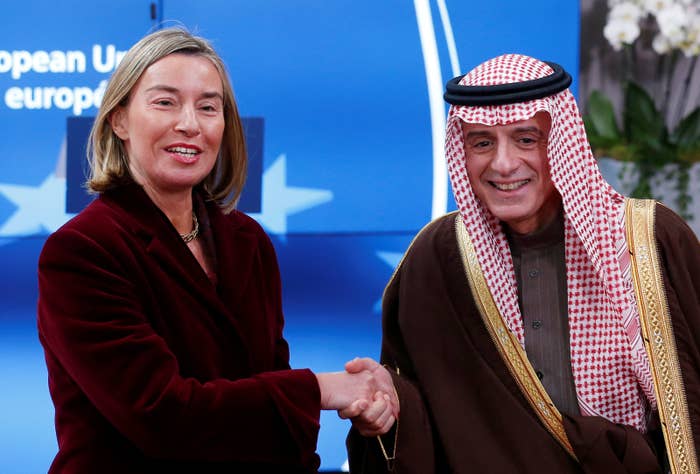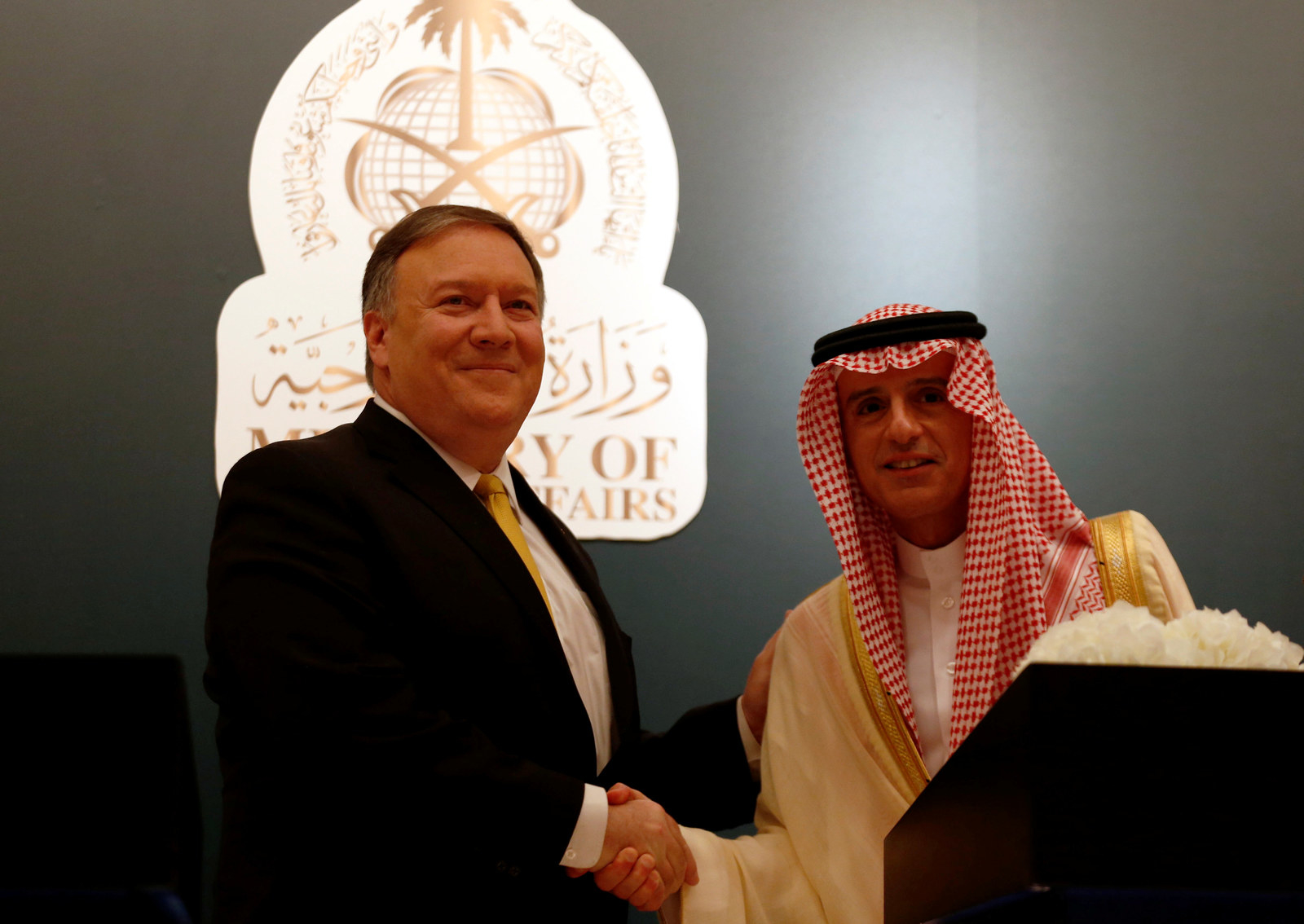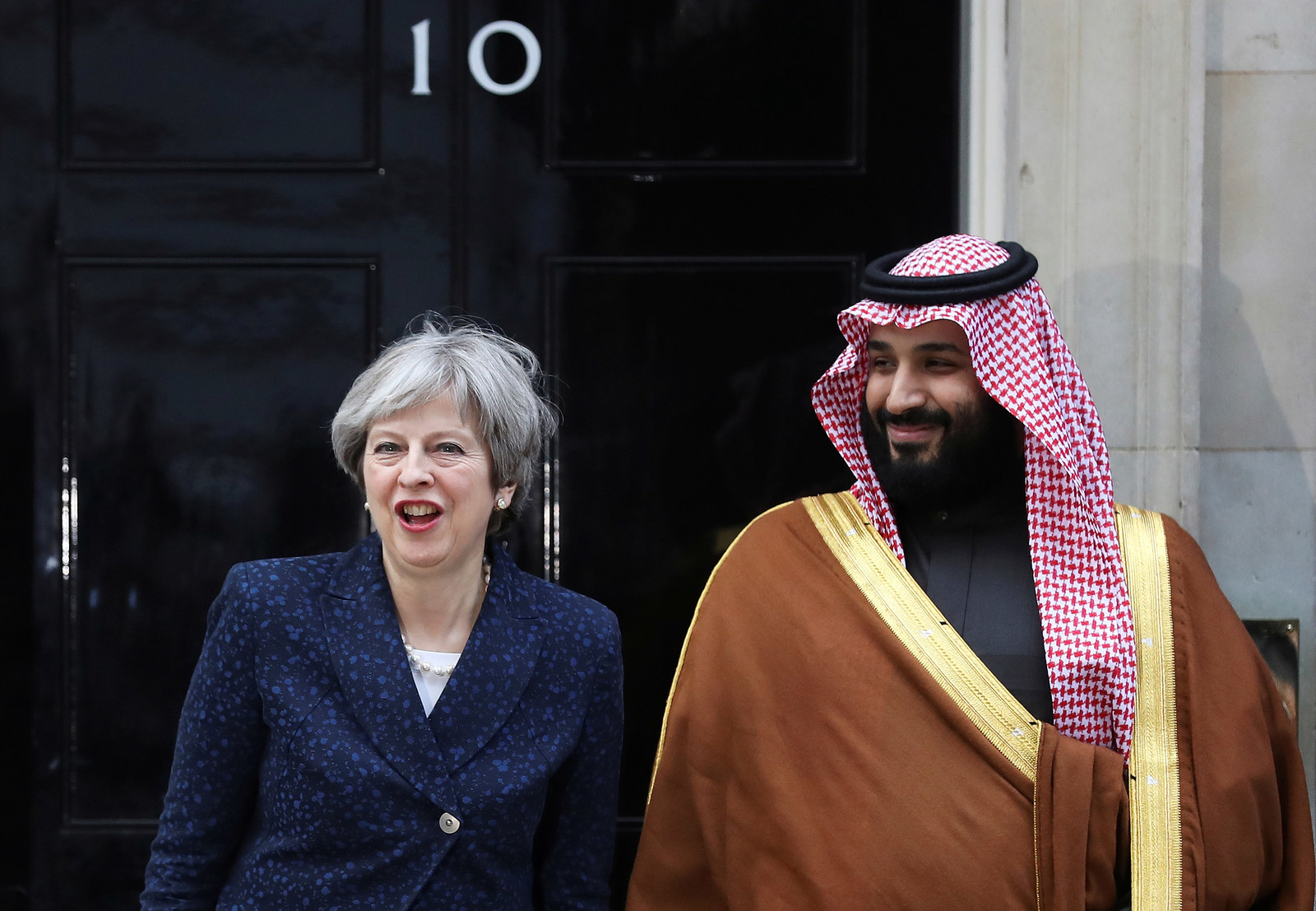
A delegation of European and EU ambassadors met with Saudi Arabia’s Foreign Minister to privately raise concerns about the country’s diplomatic spat with Canada, BuzzFeed News has learned.
At the meeting with Adel al-Jubeir, ambassadors delivered a formal diplomatic note — known as a démarche — that also covered Saudi Arabia’s record on human rights and women’s rights, according to two diplomatic sources.
However, earlier plans by the EU to issue a public statement effectively supporting Canada’s position on human rights were dropped by the EU following discussions with member states, with the démarche chosen as the path to take instead.
A senior EU official, who spoke on condition of anonymity, described the absence of a public statement as “sad,” and said it was proof that the European Union should replace its current decision-making process, which requires unanimity, with a qualified majority system.
A third EU source confirmed the formal diplomatic note had been delivered by the EU to Saudi authorities and was received at a ministerial level.
The meeting, which took place last week in the Saudi capital Riyadh, was called as a response to a huge diplomatic brawl that broke out earlier this month when the Canadian government urged Saudi Arabia to “immediately release” women's rights activists who had been arrested just weeks before a ban on women driving was lifted.
Canada is gravely concerned about additional arrests of civil society and women’s rights activists in #SaudiArabia, including Samar Badawi. We urge the Saudi authorities to immediately release them and all other peaceful #humanrights activists.
The Saudi government reacted to Canada’s tweet by accusing the Canadian government of interfering in its internal affairs. The Canadian ambassador was declared persona non grata and expelled from the country. The kingdom also announced that it was pulling out Saudi students from Canada and stopping Saudi investment in the country. Last Monday, Saudi Airlines said it would suspend services to Toronto.
Soon after the kingdom’s retaliatory measures, a surge of Saudi Twitter users began expressing concerns over Canada’s treatment of indigenous peoples and posted support for Quebec’s independence movement.
Backing for Canada during the standoff has been most notable for its absence, in particular from the US. The State Department has referred any questions about the spat back to Canadian and Saudi ministers, while President Donald Trump has so far not commented on the issue at all.
At the meeting with European diplomats, al-Jubeir called Canada’s actions “blatant interference.” He said that the issue wasn’t one of human rights or women’s rights but a national security one. According to a diplomat with direct knowledge of the meeting, al-Jubeir said Saudi Arabia had evidence that a number of the detainees were in touch with foreign entities, were seeking funds, and had passed information on to outside hostile organizations. The minister said due process would be followed.
Had Saudi Arabia not responded, it would have been seen as weak, al-Jubeir told the diplomats, according to the source who shared the information on the condition of anonymity.
In reply to a question from a European diplomat, the same source said, al-Jubeir said that Saudi Arabia had the support of all the Gulf countries except Qatar, members of the Organization of Islamic Cooperation, the Arab League states, Russia, and some Asian countries.
Other points raised in the EU’s démarche focussed on the need to build upon EU–Saudi dialogue to further cooperation, and reforms in the kingdom.
Al-Jubeir suggested that Saudi Arabia was making progress on youth and women’s empowerment, and was committed to supporting the dialogue, but needed more time and space to move the country forward at its own pace, and within the framework of its system. Saudi Arabia’s foreign minister cautioned that the kingdom needed constructive private criticism, dialogue, and EU support, not public criticism.

A number of European diplomats present described Saudi Arabia’s disposition to enter into a wide-ranging dialogue with the EU as positive and encouraging, and noted the need to build on the meeting — and advised, on that basis, to definitively drop any plan to issue a joint public declaration through the EU.
Over the weekend, the EU asked Saudi Arabia to shed light on the arrests and charges facing the human rights activists.
“The EU has been engaging constructively with the Saudi authorities seeking clarification on the circumstances surrounding the arrests of women human rights defenders in Saudi Arabia, notably with regard to the specific accusations brought against them,” a spokesperson for EU foreign policy chief Federica Mogherini said.
In particular, the spokesperson continued, the EU has been “emphasizing the relevance of the role of human rights defenders and civil society groups in the process of reform which the Kingdom is pursuing as well as the importance of respecting the rules of due process for all those arrested.”
“Based on the contacts by the EU and its member states in Riyadh,” the spokesperson said, “we expect that Saudi Arabia will continue to engage with the EU and other international partners in a comprehensive exchange on human rights issues.”
On Saturday, Mogherini also spoke to Canadian Foreign Minister Chrystia Freeland over the phone.

Similar to the Trump administration, the British government has also chosen to remain mostly silent during this diplomatic dispute. A spokesperson at the UK Foreign Office told BuzzFeed News, “Canada and Saudi Arabia are both close partners of the UK, and we urge restraint during the current situation.”
The spokesperson added that the UK is a “strong supporter of human rights. We regularly raise our concerns with the Saudi government about human rights issues, including the recent arrests of human rights defenders.”
